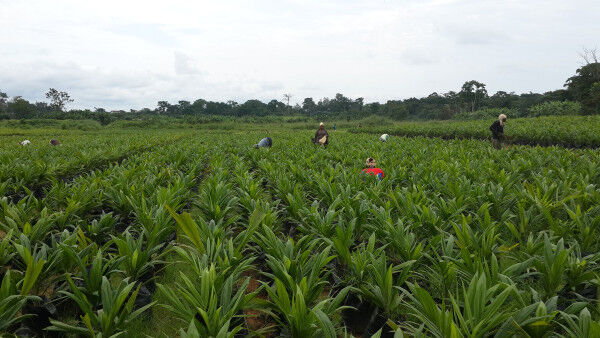
In commemoration of the International Day of Rural Women, female farmers have been urged to be open to adopting new farming techniques to improve their productivity.
The stakeholders who made the appeal while speaking on the federation’s theme: ‘Good food for all, for today and tomorrow,’ said many rural women are not willing to go all out to acquire training on new improved technologies if there are no immediate benefits.
While speaking at a webinar organised by HortiNigeria, in partnership with SWIS Africa for Women’s Empowerment and Agribusiness, the stakeholders raised critical concerns impacting rural women farmers in Nigeria.
The webinar was organised to explore strategies to spark investment opportunities for rural communities and promote financial inclusion, modern farming techniques, as well as the empowerment of rural women in agriculture. The event also highlighted how these measures could create a lasting impact on rural women’s livelihoods.
Leader of the Hanwa Taimako Women and Multipurpose Society, Aisha Ahmed, emphasised the importance of growing profitable crops like vegetables, which she said could provide food security and higher profits for women. “We encourage women to farm more vegetables rather than traditional grains,” she stated.
She noted that while many women do not have access to land, high rental costs, combined with insecurity in certain areas are factors hindering them from maximising agricultural opportunities.
The CEO of Umera Farm, Olamide Alao-Akala, who discussed the challenges women face when starting agribusinesses, cited lack of education and resources as their major albatross. “Many women start businesses but struggle to sustain them due to a lack of education and resources,” Alao-Akala said, explaining how her organisation provides training and resources to help women improve their profit margins.
Also, the CEO of Seed Projects Co. Ltd, Dr. Zainab Gwadabe, who joined from the World Food Forum in Rome, underscored the role of quality seeds in addressing food security challenges. “High-quality seeds are essential for improving agricultural yields and nutrition,” she noted.
Financial inclusion was another key theme, with Olajumoke Daramola from Women’s World Banking, advocating for women-centered financial solutions. “Recognising and investing in women’s financial inclusion is essential for sustainable development, additionally, tailored financial products could drive adoption and empowerment,” she said.
The panelists also discussed other challenges facing rural women, including limited access to funds, technological barriers, and insecurity.
A mentor and entrepreneur, Tolulope Aina, stressed the importance of mentorship in agribusiness. “Mentorship should be action-oriented and provide a safe space for learning,” she remarked.






